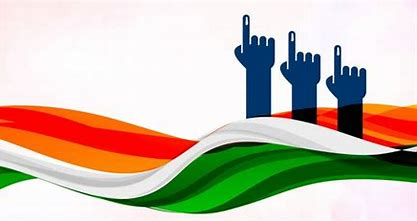This proposal is well in accordance with our constitutional provisions.
The One Nation One Election (ONOE) proposal is one of the most progressive and transformative reforms introduced by the Narendra Modi government, with the potential to bring about significant positive change in our democratic, electoral, and political systems. It seeks to synchronize national and state elections, reducing disruptions, lowering financial burdens, and improving overall governance.
THE CASE FOR SIMULTANEOUS ELECTIONS
The “One Nation, One Election” (ONOE) proposal addresses several challenges posed by the current system of frequent elections, offering compelling reasons for its adoption. One of the most pressing reasons for adopting ONOE is the financial strain caused by frequent elections. For example, the total expenditure of the 2024 general elections was estimated to exceed Rs 135,000 crore, making it the most expensive election ever globally. Simultaneous elections would consolidate resources, reduce repetitive expenditures and significantly lower costs. Each election also triggers the Model Code of Conduct (MCC), which restricts the government’s ability to launch new policies or initiatives. This leads to delays in development and hampers governance. Fewer elections would minimize MCC impositions, allowing uninterrupted policy implementation and better governance.
Elections require extensive deployment of security forces, administrative personnel, and logistical resources. Frequent elections stretch these resources thin, diverting them from their primary responsibilities. Simultaneous elections would streamline resource use, improve efficiency and would reduce strain. The continuous election cycle pushes political parties to prioritize short-term goals over long-term developmental strategies. By aligning elections, governments can focus on stable, policy-driven governance, fostering greater continuity and progress. The constant need to vote can lead to voter fatigue, reducing turnout and diminishing civic participation. Consolidated elections would decrease the frequency of voting, likely boosting voter interest and electoral participation.
HIGH-LEVEL COMMITTEE ON SIMULTANEOUS ELECTIONS
The Modi government formed a High-Level Committee led by former President Ram Nath Kovind to assess the feasibility of implementing “One Nation, One Election” (ONOE). This committee conducted extensive consultations with political parties, constitutional experts, election officials, and the public, ultimately providing detailed recommendations for ONOE’s implementation.
The committee recommended starting with the synchronization of Lok Sabha elections with a select group of state Assembly elections, gradually aligning all electoral cycles over time. A nationwide electoral roll and a unified voter ID system was proposed as measures to enhance efficiency and eliminate duplication. The committee suggested that the Election Commission of India would oversee the logistics of simultaneous elections to ensure uniformity across states. There is a need for amendments to the Constitution, particularly regarding the terms and dissolution of legislative bodies, to enable synchronized
ADDRESSING MYTHS ABOUT ONOE
Despite its clear benefits, the “One Nation, One Election” (ONOE) proposal has faced significant criticism from various opposition parties, all of which appear to be driven by political necessities. Opponents claim that ONOE undermines democracy and India’s federalism. However, it is worth noting that for the first twenty years after Independence, elections were conducted simultaneously across the country. This system began to crumble in 1967 when some state Assemblies were dissolved prematurely, leading to unsynchronized election cycles. The shift to separate elections initially resulted from mid-term dissolutions, rather than any inherent flaw in the system. This trend was further reinforced during the tumultuous period of the Emergency declared in 1975. ONOE does not alter democratic processes or infringe upon voters’ rights. On the contrary, it seeks to enhance its efficiency by reducing electoral disruptions.
This proposal is also well in accordance with our constitutional provisions. The Indian Constitution empowers Parliament to amend provisions related to legislative terms and dissolution procedures to ensure the efficient functioning of both state and national legislatures. Importantly, the distribution of legislative powers between the Union and the states remains unaffected, thereby preserving the fundamental principles of federalism. The Constitution also grants Parliament the authority to regulate election processes, including those for both national and state legislatures. Constitutional amendments needed for ONOE can be made through the established process under Article 368.
Barbs from some of the parties in Opposition that ONOE would hinder governance is also hard to justify. Frequent elections divert politicians from their primary responsibilities, compelling them to prioritize campaigning over policymaking and advancing development initiatives. ONOE would enable elected leaders to focus more on core administrative tasks. Moreover, the repeated imposition of the Model Code of Conduct disrupts regular government activities. By reducing the frequency of these interruptions, ONOE would enhance policy continuity and bolster governance.
This proposal is rooted in our constitutional framework and seeks to enhance India’s democratic processes and participation. With thoughtful planning and gradual implementation, ONOE has the potential to create a more efficient, responsive, and streamlined government, ultimately benefiting both citizens and the nation.
* Anil K. Antony is a National Secretary and National Spokesperson of the Bharatiya Janata Party.

